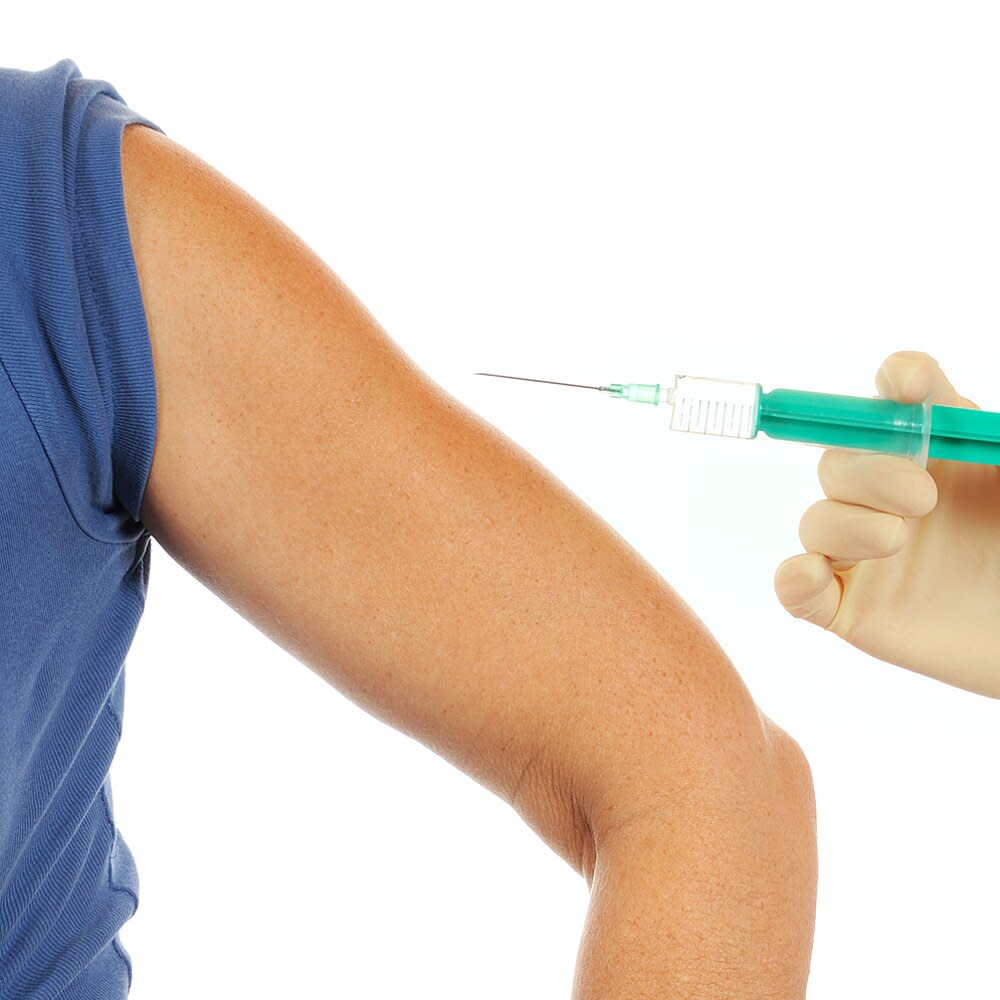Why Your HPV Vaccine Excuses Are Total BS

Shutterstock
The vaccine to prevent infection from the human papilloma virus (HPV) was introduced in 2006 and has been a source of some controversy over the last decade. Many parents are uncomfortable with vaccinating their tween girls against a sexually transmitted disease, and during the 2012 presidential election, politicians even suggested that the shots were linked to the development of mental illness. Otherwise, the HPV vaccine has been out of the headlines for a while-until now.
Cancer research centers across the United States-seventy of them in all-released a joint statement begging people to rethink their hesitancy towards the HPV vaccine. According to the Centers for Disease Control and Prevention (CDC), only 40 percent of girls are getting the entire vaccine (a series of three shots), even though the Department of Health and Human Services aims to have 80 percent vaccinated by 2020. The vaccine protects against the strains of the virus that are clearly linked to cervical and other genital cancers. (Related: The new shot that could defeat cervical cancer.) Still not convinced you need the HPV vaccine? Rethink these excuses.
Excuse 1: Everyone has some form of HPV, anyway.
Yes, the CDC reports that nearly all women and men will have HPV at some point in their lives. So why bother vaccinating? Because it's not one simple virus with a simple solution. Human papilloma virus is a group of 200 different viruses, with each strain named after a number to keep them all straight. Some are completely harmless, others cause warts on your arms, a couple cause warts on your genitals, and some create abnormal cells on your cervix, which may develop into cancer. The vaccine targets those cancer-causing strains in particular.
Excuse 2: I'm already sexually active.
Since the vaccine is recommended for girls before they become sexually active, it may seem like if you've lost your virginity, it's too late. Not true. The CDC recommends vaccination for women up to age 26, and your particular sexual history may affect the likelihood of infection. Even if you're over 26-years-old, your OBGYN may still give you the vaccine off-label. Talk to your gynecologist to assess if you'd be a good candidate.
Excuse 3: I get screened for cervical cancer regardless.
Great! You should. But you want to reduce your risk of those screenings coming back positive, right? The vaccine is 97% effective at preventing cervical and vulvar cancer. Find out if you should trade your Pap for an HPV test.
Excuse 4: It's too expensive.
The total vaccination process, which includes three doses, can cost up to $500. It's a large cost for most, but many insurance companies will cover the vaccine, or, at least one of the doses. For children and teens (up to 19) who are not insured or underinsured, the federal program Vaccines for Children has thousands of locations across the country where patients can get the vaccine for free.
So yes, shots aren't exactly fun. And no, the vaccine is not exactly cheap. But when you weigh the financial and emotional cost of cervical cancer against this temporary burden, the answer is pretty clear. Get the vaccine already.

